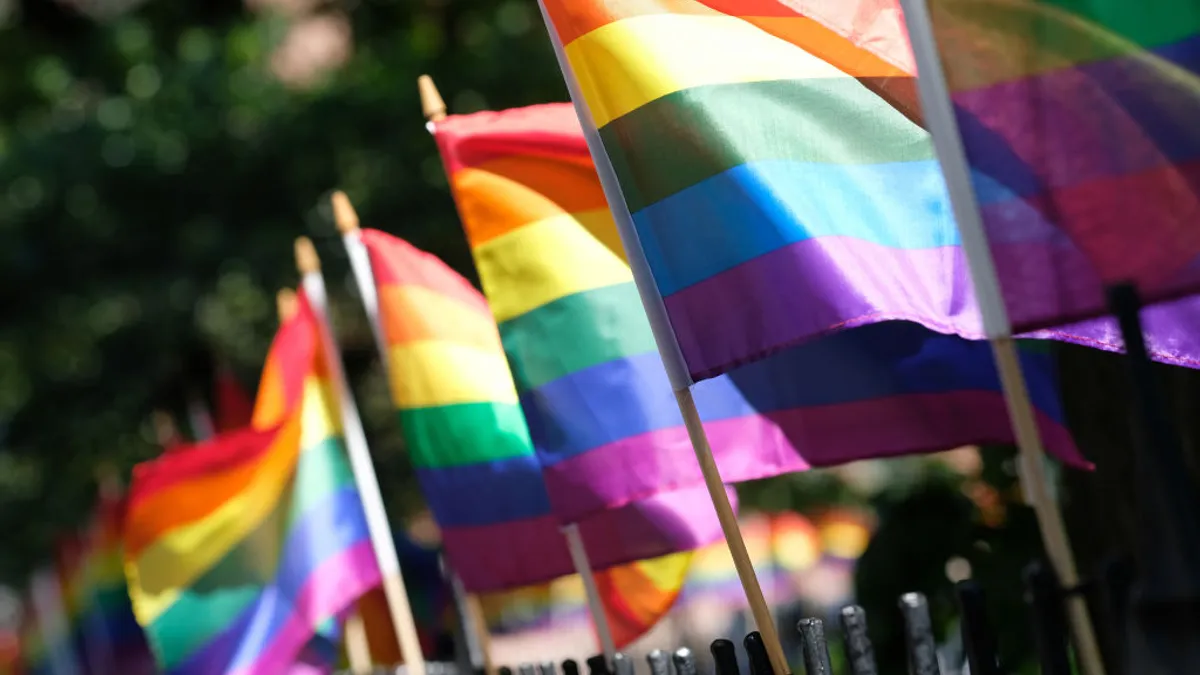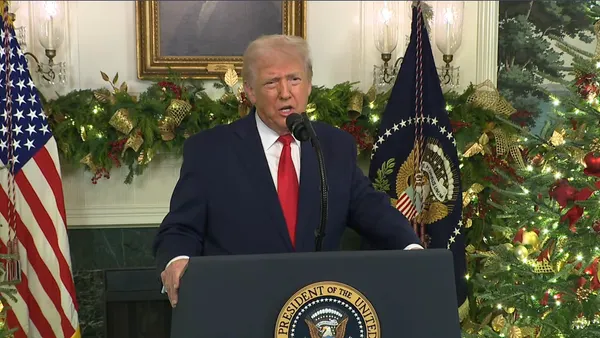Dive Brief:
-
A federal judge blocked key provisions of Iowa's "Don't Say Gay" law just prior to the statute's Jan. 1 implementation date.
-
The preliminary injunction, issued Dec. 29 in U.S. District Court, blocks implementation of curriculum restrictions that would require removal of books from K-12 libraries containing a description or visual depiction of a “sex act" and lift restrictions on content related to gender identity and sexual orientation in grades K-6.
-
Other portions of the law remain in effect, including a provision requiring school staff to report to parents or guardians if their child requests an accommodation related to gender identity, such as a name or pronoun change. Starting this month, school staff could be fired or lose their license if they violate portions of the law still in effect.
Dive Insight:
While other conservative states have enacted provisions similar to Iowa's, the state's SF 496 is singularly expansive. For example, whereas Florida has multiple laws regulating content related to gender and sexuality and restricting pronoun usage, Iowa's law loops those provisions into one statute.
Even prior to its Jan. 1 implementation, the law led to Iowa school districts banning hundreds of books, according to a database compiled by the Des Moines Register.
The law's broad reach has made it the subject of multiple lawsuits, including one filed in December 2023 by publishing giant Penguin Random House, leading authors Jodi Picoult and John Green, and the Iowa State Education Association. Plaintiffs in that lawsuit requested a preliminary injunction for some portions of the Iowa law.
The order for a preliminary injunction on some portions of the law issued by U.S. District Judge Stephen Locher was in response to that lawsuit and a second filed just days later by Lambda Legal and the American Civil Liberties Union of Iowa.
"Should a public school employee make the wrong guess about which books are not allowed in their classroom or school library, they could lose their job, teaching license, and career," said ISEA President Mike Beranek in a statement on Dec. 22, the day of the hearing for both lawsuits. "Library books and classroom materials used in our public schools should remain the responsibility of education experts and locally elected school boards within the parameters of our state-approved education standards."
The two cases have not been consolidated and are proceeding separately unless the court decides otherwise.
However, both lawsuits requested that the law, or portions of it, be temporarily blocked while the cases work their way through the court system. They both challenge the law under the First and 14th Amendments, as do other suits challenging curriculum restrictions in other conservative states.
Nathan Maxwell, senior attorney for Lambda Legal, said in a Dec. 29 statement that the "decision sends a strong message to the state that efforts to ban books based on LGBTQ+ content, or target speech that sends a message of inclusion to Iowa LGBTQ+ students cannot stand."
The lawsuits filed by Lambda Legal and on behalf of ISEA both seek to permanently block the law.







 Dive Awards
Dive Awards





